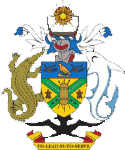Economic Partnership Agreements (EPAs) are trade and development agreements negotiated between the EU and African, Caribbean and Pacific (ACP) states engaged in the process of regional integration. The aim is to promote EU and ACP trade and contribute to poverty reduction and sustainable economic growth through trade and investment. The EU represents a major trading partner with the Solomon Islands, considering the distance of the market. Solomon Islands exports predominantly primary goods to the EU, namely palm oil and tuna.
EPAs are WTO compatible but, much like PACER Plus, are supposed to go beyond the scope of conventional FTAs, to focus on ACP development. Though reciprocal, the agreement would offer Solomon Islands a long transition period to open up partially to EU imports and protection for sensitive sectors, as well as provide for a wide range of cooperation on areas such as SPS and other standards.
The Pacific ACP (PACP) States, collectively the FICs, have been negotiating an EPA since 2004. The agreement covers trade in goods, trade in services, development cooperation and trade related issues like food health and safety issues, technical barriers to trade, agriculture, sustainable development and competition.
Since 2012, negotiations have been suspended due to a lack of consensus amongst FICs and the EU on a number of contentious issues.
An interim EPA has been signed by Fiji and Papua New Guinea, to guarantee preferential market access to EU markets for their exports. Solomon Islands is currently undertaking the necessary national consultation processes and conducting internal analysis to consider the Interim EPA, as well as all other available options, until formal negotiations on the EPA resume.
For more information visit the PIFS website
